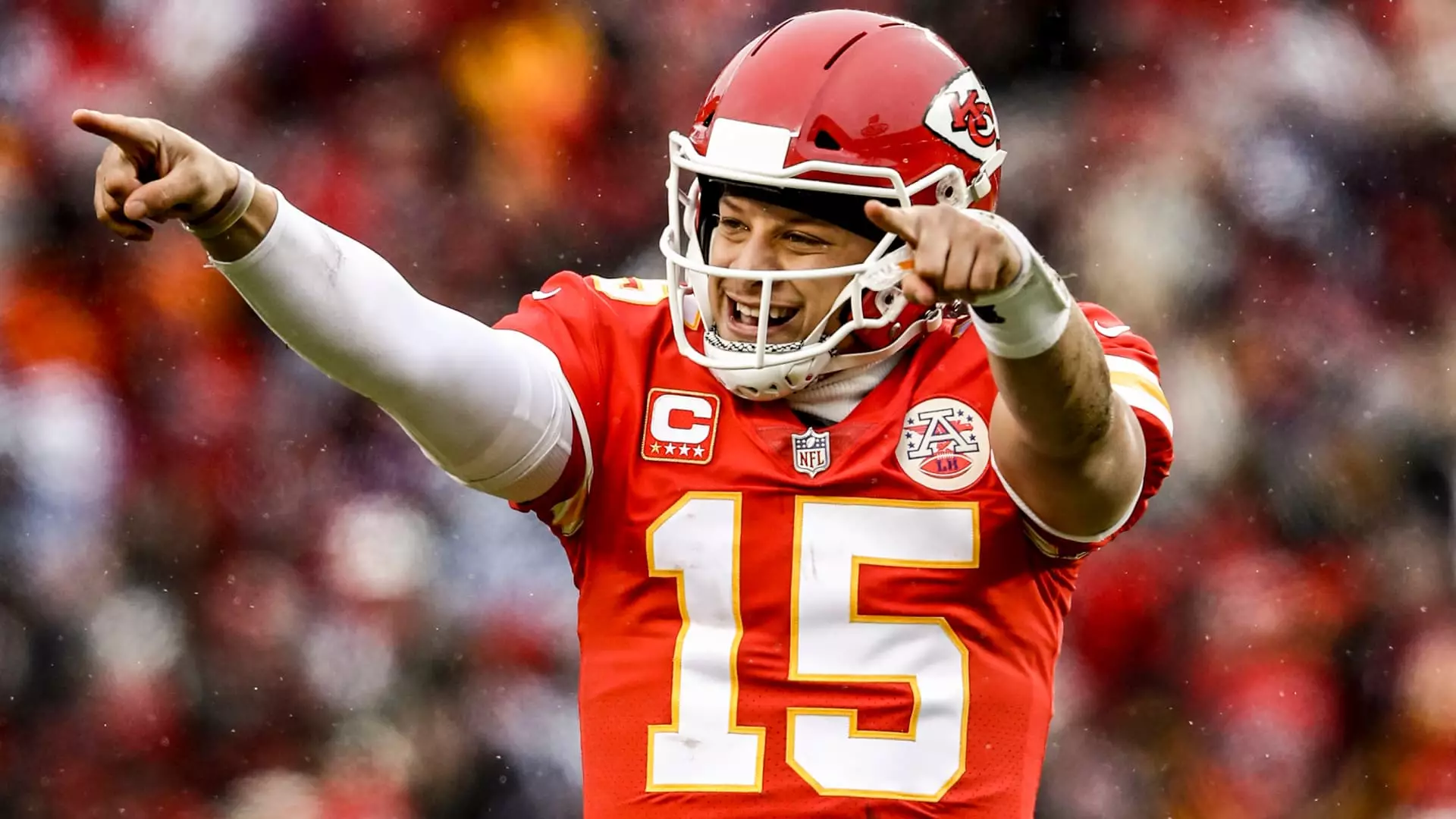Patrick Mahomes, celebrated quarterback and three-time Super Bowl champion, now aims to redefine what it means to be a modern sports icon. His recent foray into the coffee industry as a “coffee entrepreneur” exemplifies a broader trend among elite athletes seeking to reinvent themselves beyond their athletic achievements. While on the surface, this diversification appears to signal versatility and forward-thinking, it subtly exposes the often superficial nature of athlete branding in contemporary sports culture. Mahomes’ investment in Throne Sport Coffee, accompanied by the role of product tester and brand ambassador, seems more like a carefully curated image rather than a genuine passion. The question is whether this shift reflects authentic interest or a calculated move to safeguard his financial future amid the unpredictable tides of professional sports and market volatility.
This transition raises essential questions about the authenticity of athletes’ pursuits off the field. Are these ventures driven by real enthusiasm and expertise or merely strategic efforts to capitalize on their popularity? Mahomes’ association with Throne, promoted as a healthier, protein-enhanced coffee alternative, may appear innovative, but it also underscores the commodification of athlete personas. His daily consumption, endorsement, and public statements serve to cement his image as not just a star athlete but a lifestyle influencer. The danger lies in equating marketable hobbies with genuine passions, risking an identity that can easily fade once athletic primes diminish.
The Myth of the Athlete-Entrepreneur: A Portrait of Strategic Branding
In the competitive world of consumer products, athlete endorsements are often more about visibility than substance. Mahomes’ involvement in Throne Sports Coffee highlights this phenomenon. While the product boasts impressive nutritional claims—lower sugar, added electrolytes, and vitamins—these features serve more as marketing hooks than groundbreaking innovations. The real story is how athletes leverage their fame to carve out economic niches that insulate them from the insecurity of sports careers.
Mahomes’ narrative about coffee starting as a necessity during meetings and evolving into a passion feels constructed to resonate with fans and consumers looking for relatable, health-conscious choices. But this carefully crafted image glosses over the reality that most professional athletes invest in a diverse portfolio not necessarily out of genuine interest but to diversify income streams and maintain relevance. His burgeoning involvement in multiple sports ventures, from Major League Baseball to Formula 1, signals a broader trend: athletes are increasingly becoming multi-platform entrepreneurs, often at the expense of authenticity, to buffer against the inevitable decline of athletic performance or marketability.
This trend toward business ventures risks turning sports stars into brand assets, rather than individuals with authentic passions. Mahomes may represent a new archetype, but beneath this polished surface lies the danger of sacrificing deep personal engagement for commercial opportunity. His interest in potentially owning a stake in the Kansas City Chiefs someday seems like an aspirational goal, yet it simultaneously highlights how personal ambitions become intertwined with financial strategies.
The Spectacle of Sports Investment and the Illusion of Genuine Community Connection
Mahomes’ investments in local sports teams and his musings about stadiums in Kansas City paint an image of a player deeply rooted in his community. However, this image deserves scrutiny. Is it rooted in authenticity, or is it another layer of carefully curated brand positioning? The NFL’s ongoing stadium debates and Mahomes’ vague comments about the stadium future reflect a broader struggle of balancing tradition with commercialization.
For many fans, the stadium is more than just a venue; it’s a symbol of local pride and communal heritage. Yet, Mahomes’ willingness to comment on its future without a clear stance signals the complexities athletes face when navigating economic incentives and community ties. His musings about ownership and longstanding involvement in the franchise tread the line of aspiration and performance, but they also risk reducing a deeply emotional issue to a mere business consideration.
Similarly, Mahomes’ cautious stance on an extended NFL season and international expansion—particularly in Brazil—reveals a pragmatic understanding of the sport’s physical toll but also hints at the shifting priorities in a league increasingly driven by revenue and global branding. His call for more bye weeks underscores a tacit recognition that athlete health is secondary to profit-driven expansion. This stance, while seemingly balanced, ultimately aligns him with an industry that often sacrifices integrity for growth.
Mahomes embodies a new archetype—an athlete turned savvy investor, brand ambassador, and community figure—yet this transformation is riddled with contradictions. What appears as versatility and ambition can often mask a deeper yearning to maintain relevance in a culture obsessed with personal brands and marketability. His ventures into coffee and sports ownership are not necessarily reflections of authentic passions but strategic moves within a landscape that monetizes every aspect of athlete life.
The modern athlete’s identity is increasingly fragmented, shaped by corporate interests and consumer expectations. Mahomes’ story reflects a broader societal tendency to commodify greatness, transforming heroes into brands. Whether this is ultimately beneficial or superficial depends on whether these pursuits serve genuine personal fulfillment or merely sustain the illusion of multifaceted success in a world obsessed with appearances.


Leave a Reply